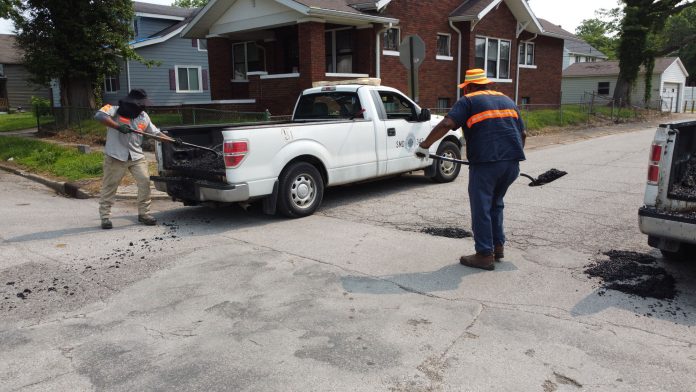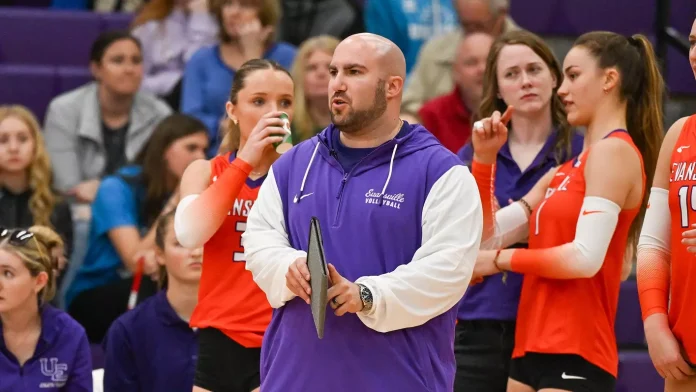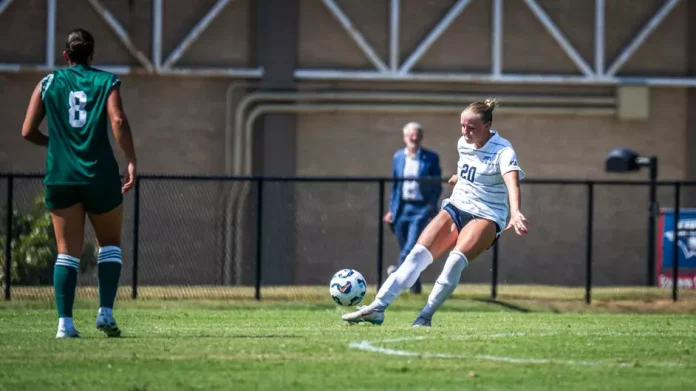INDIANAPOLIS, August 27, 2025 (Newswire.com) – Accomplished educator Dr. Nneka J. McGee turned her professional research in artificial intelligence into a doctoral degree at American College of Education (ACE), establishing her as a national leader in implementing AI in K-12 classrooms – just as a new presidential executive order calls for more AI education in K-12 schools.
ACE, founded in 2005 and accredited by the Higher Learning Commission, is a national innovator in providing quality, affordable and online graduate degrees, and is the third-highest conferrer of education master’s degrees in the United States.1
For her doctoral dissertation, McGee conducted original research into K-12 teachers’ experiences learning about AI and attempting to implement it in their classrooms. She completed her program in December 2023 and graduated from ACE in 2024.
She chose to pursue her degree at ACE because of her concerns about the high tuition and student loan debt at most graduate programs. She also wanted the flexibility of online education so she could continue her career – something difficult or impossible if she attended a traditional bricks-and-mortar university.
ACE’s doctoral tuition is under $25,0002 and among the lowest in the United States. It has not raised tuition in eight years3 and the college forgoes federal student loan programs, which helps keep costs low. As a result, McGee was able to graduate from ACE without accruing any student loans.
“That was really a determining factor for me, and ACE also has the accreditation that is necessary,” McGee said. “Because of that and the flexibility of the program, I was able to keep working and, during my program, I rose from director to executive director to chief academic officer.”
When McGee began her research, she was working as a director of advanced academics in a Dallas-area school district and building the framework for launching an AI initiative aimed at helping students learn more about the technology. ChatGPT was still years from becoming a household word, and she realized there were few studies on the use of AI in the United States’ K-12 schools.
“I noticed there is this thing, AI, that is going to transform education, and I thought not enough people are talking about it or looking at the implications. That was the genesis for my research,” McGee said.
Through a questionnaire and follow-up interviews, she gathered information from a slate of K-12 teachers nationwide on their efforts to learn about AI educational tools and to bring them into the classroom.
McGee found that teachers were using AI-powered tools to save time on tasks, and that they saw increased student engagement when AI was incorporated into learning environments. However, teachers also faced significant challenges in attaining those outcomes.
“One of the biggest findings is that teachers don’t have enough access to quality professional development in this space,” she said. While AI is a hot topic of discussion, teachers have limited access to people with enough expertise to implement it. Teachers had to seek out the few options for professional development on their own.
She also found that when teachers did find a way to access AI training, they often faced the challenge of having limited time to pursue the professional development side, let alone implement it in their classrooms.
Doctoral students often face similar challenges as they study and write their dissertations. McGee said ACE’s online classes are more effective than traditional on-campus lectures because “you actually have more time to sit and really process the information, because it is flexible, on your own time, when you’re in the best condition to learn.”
ACE uses a chapter-by-chapter dissertation model, where students work on their dissertation progressively throughout their doctoral program, rather than waiting until the end. In addition, dedicated faculty members guide students through each phase of the dissertation, including topic selection, literature review, research methodology, data analysis and the final defense.
Professors also offered invaluable support when she felt challenged while writing her dissertation. “One of my professors kept checking in on me – he may have noticed it in my emails or responses – and he said, ‘OK, we need to talk like, so call me and let’s talk,'” McGee said. “That call really changed everything. He said, ‘Let’s look at this, how are you feeling, why are you feeling this way?’ And I realized what I needed to do, and that weekend I finished everything up. So it was a pivotal moment.”
The dissertation, now available online, recommends that school districts invest in professional development and resources that promote responsible AI implementation – an idea echoed months later in April’s presidential executive order.
McGee’s work has caught the attention of many organizations developing policies and uses for AI, allowing her to serve as a panelist for the U.S. Department of Education and Carnegie Mellon University. She has also collaborated on projects with Digital Promise and the Stanford Accelerator for Learning at Stanford University. McGee has been in high demand as a keynote or featured speaker on AI in education at multiple conferences.
She credits much of her success to ACE’s program and the quality and personal attention of its faculty. “My dissertation work came out when ChatGPT exploded,” McGee said. “People saw me as a teacher with campus experience, district leadership and administration experience, and I had a doctoral degree. That just wouldn’t have been possible without ACE’s program, and the care and consideration of my teachers.”
ACE President and CEO Geordie Hyland said the college was proud of McGee’s career success.
“Dr. McGee’s commitment to pursuing her doctorate on AI’s role in education is a perfect example of our students’ dedication to learning and mastering the latest advances in their field,” Hyland said. “Students like Dr. McGee are the reason ACE is committed to building programs that teach current, relevant skills, and why we continually refine those programs while relentlessly focusing on keeping our degrees accessible and affordable.”
1nces.ed.gov/IPEDS/datacenter
2This is an estimated value of the cost for tuition and fees. Amounts may vary depending on number of transfer credits applied to the selected program hours, the pace and satisfactory completion of the selected program, receipt of institutional scholarship and/or grant amounts, or adjustments to tuition or fees as described in the Catalog Right to Modify Tuition section. State sales and use tax will apply where required by law.
3Excludes RN to BSN












